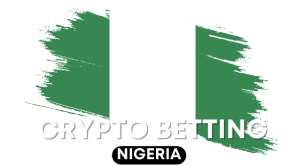Decentralized finance (DeFi) is gaining momentum in Nigeria, and for good reason. With traditional banking systems often failing to meet the needs of Nigerians, DeFi offers an alternative solution that is transparent, accessible, and efficient. In this article, we’ll explore how DeFi is changing the game for Nigerians and what the future holds for this emerging industry.

Decentralized Finance, or Defi for short, is a game-changing financial ecosystem built on blockchain technology. Say goodbye to traditional financial intermediaries like banks and brokerages! Defi uses smart contracts, which are self-executing agreements, to enable financial services such as lending, borrowing, and trading in a trustless and transparent manner.
By leveraging decentralized applications (dApps) built on blockchain platforms like Ethereum and Binance Smart Chain, Defi has the potential to revolutionize the financial sector. It puts individuals in complete control of their assets, reduces fees, and enables faster transactions. What’s not to love?
In recent years, Nigeria has seen a significant increase in Defi adoption. The growing interest in cryptocurrencies and the need for alternative financial solutions have paved the way for Defi’s growth in the country. Several factors, such as the inadequacies of the traditional financial system, high inflation rates, and a large unbanked population, have contributed to this rise.
When the Central Bank of Nigeria imposed restrictions on cryptocurrency transactions in February 2021, it only fueled the fire. Many Nigerians sought alternative ways to access financial services without the limitations of the traditional banking system. As a result, decentralized platforms and applications have gained traction among the Nigerian populace.
Curious about why Defi is becoming increasingly popular among Nigerians? Here are some reasons:
In a nutshell, the growth of Defi in Nigeria can be attributed to the desire for financial inclusion, better investment opportunities, and the need for an alternative to the traditional financial system. As Defi continues to gain traction, it has the potential to transform the financial landscape in Nigeria and improve the lives of millions of Nigerians. So, let’s raise a toast to the future of finance!
Decentralized finance (Defi) is rapidly gaining popularity in Nigeria, and several platforms have emerged as top choices among Nigerians. Here are some of the most popular ones:
Defi platforms are reshaping Nigeria’s financial landscape by offering users a range of services previously inaccessible or unaffordable. Here are some ways these platforms are making a difference:
Several Defi projects have made their mark in Nigeria, showcasing the potential for decentralized finance to thrive in the country. Some notable examples include:
These successful projects highlight the growing appetite for decentralized finance in Nigeria and underscore the potential for Defi to bring about lasting change in the country’s financial landscape.

Decentralized Finance (Defi) is revolutionizing Nigeria’s financial landscape, tackling the issue of financial inclusion head-on. Traditional banking systems have long struggled to serve the entire population, but Defi offers a more accessible and inclusive alternative. Thanks to blockchain technology, Defi platforms cut out intermediaries, making financial services more affordable and available to the masses.
Defi is making a significant impact in Nigeria by providing affordable remittance services. With a large diaspora community sending money back home, Nigerians heavily rely on remittances. Defi platforms offer lower transaction fees and faster transfer times, making it easier and more cost-effective for people to send and receive money – no more waiting for days!
Defi enables Nigerians to access credit and lending services without the need for credit scores or collateral. This is a game-changer for the unbanked and underbanked population, who often struggle to access loans through traditional financial institutions. No more jumping through hoops for a simple loan!
With over 40% of the population lacking access to formal banking services, Defi platforms are stepping in to provide a range of financial services that are accessible to everyone.
One of the primary ways Defi is impacting the unbanked and underbanked population is by offering savings and investment opportunities. Platforms like PiggyVest and Cowrywise allow Nigerians to save money and earn interest on their savings, even without a bank account. Additionally, Defi platforms like Bamboo and Chaka enable Nigerians to invest in local and international stocks, providing access to a wider range of investment opportunities – the world is now your oyster!
Defi is also transforming the lives of the unbanked and underbanked population by offering alternative credit scoring systems. Traditional banks often require credit scores to assess the creditworthiness of potential borrowers. However, Defi platforms use alternative methods such as social scoring and transaction history to assess borrowers’ credibility. This allows people with limited or no credit history to access loans and credit facilities – say goodbye to the old, rigid credit systems!
Several Defi projects in Nigeria are making significant strides in improving financial access and inclusion. Here are a few examples that showcase the power of Defi:
These case studies showcase how Defi projects are making a tangible impact on financial inclusion in Nigeria. By providing accessible and affordable financial services, Defi is paving the way for a more inclusive and financially empowered Nigerian population. It’s time to embrace the future of finance with Defi!

Decentralized Finance (Defi) has certainly brought a wealth of benefits to Nigeria’s financial landscape, but let’s not forget the risks that come along for the ride. One of the primary concerns is the lack of a central authority, which can lead to a lack of accountability and increased vulnerability to fraud and scams. Thanks to the anonymity provided by blockchain technology, catching these bad actors and recovering stolen funds can be a real headache.
Another risk that’s hard to ignore is the volatility of cryptocurrencies, which form the backbone of most Defi platforms. The value of these digital assets can swing wildly, making investments in Defi projects feel more like a rollercoaster ride than traditional financial instruments. This volatility can scare off potential investors and hamper the growth of the Defi ecosystem in Nigeria.
Additionally, let’s not forget that the technology behind Defi is still a young and constantly evolving beast. This can lead to technical vulnerabilities and glitches, potentially causing losses for users. For example, smart contracts, which are at the core of many Defi applications, may contain coding errors or vulnerabilities that can be exploited by hackers. No one likes an unexpected surprise, especially when it comes to their finances!
The rapid growth of Defi in Nigeria has certainly caught the attention of regulators and government bodies, who are now grappling with the challenges of overseeing this emerging industry. In February 2021, the Central Bank of Nigeria (CBN) issued a circular prohibiting banks and other financial institutions from dealing with cryptocurrencies or facilitating payments for cryptocurrency exchanges. Talk about raining on our Defi parade!
This move has created uncertainty and apprehension within the Nigerian Defi community, as it stifles the ability of local platforms to access banking services and could hinder the development of the ecosystem. Moreover, there is a lack of clear regulatory frameworks and guidelines specifically tailored to Defi, which can lead to a regulatory vacuum and make it difficult for Defi platforms to operate within the bounds of the law.
In response, some industry stakeholders have called for dialogue between the Defi community and regulators to develop a more nuanced and tailored approach to regulation. This would involve striking a balance between fostering innovation and protecting consumers and the financial system from potential risks. A little give and take, if you will.
To ensure the continued growth and success of Defi in Nigeria, several barriers need to be addressed. First and foremost, there is a need for increased awareness and education on Defi and its potential benefits. Many Nigerians still lack a basic understanding of cryptocurrencies and blockchain technology, which can hinder their willingness to explore and invest in Defi projects. Knowledge is power, after all.
Moreover, improving the user experience on Defi platforms is crucial for attracting and retaining users. Many platforms are still relatively complex and challenging to navigate, especially for individuals with limited technical knowledge. Simplifying the user interface and offering more user-friendly applications can help drive adoption among a wider audience. Make it easy, and they will come.

The Nigerian Defi ecosystem is witnessing rapid growth and expansion, with several innovative trends and developments shaping its future. Let’s dive into some of these exciting advancements:
Defi has the potential to drive significant economic growth and financial stability in Nigeria by addressing some of the country’s most pressing financial challenges. Let’s explore the benefits of Defi:
The future of Defi in Nigeria looks promising, with several factors contributing to its continued growth and development:
However, for Defi to fully realize its potential in Nigeria, there are certain challenges that must be addressed, such as regulatory uncertainty, inadequate infrastructure, and the need for greater public awareness and understanding of Defi concepts and technologies. By addressing these challenges and leveraging the opportunities presented by Defi, Nigeria can harness the power of decentralized finance to drive economic growth and promote financial stability. The future is bright!

